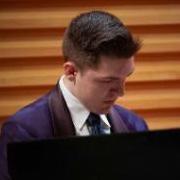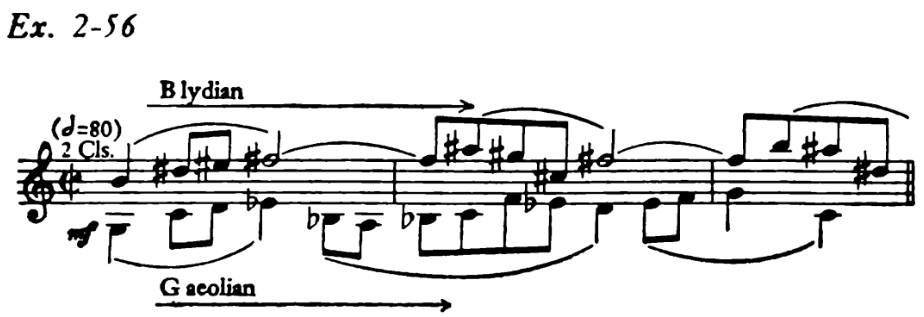Leaderboard
Popular Content
Showing content with the highest reputation since 02/25/2026 in all areas
-
It's been a long time! I used to frequent this forum in my 20s, now I'm 42 years old, living abroad, haven't really written any music in the last decade, but I never fully gave up on writing music. It's time to fix my writer's block. I'm setting up this topic as a challenge to myself. Writing music in my 20s was something that came very slowly and painfully as I am a massive perfectionist and not terribly disciplined. So this plan is designed to cure me of that. - Only writing fragments for now. No aiming for completed pieces. - Focusing on practicing use of musical elements I like, experimentation over destination. - Loosely tracking my time in order to force something out the door, rather than get stuck on revisions. - Long term learning goal is to build the skills to write hybrid electronic/orchestral music for games. If anyone wants to take on this challenge with me, feel free, and you are welcome to post things here. For my part, the pacing is starting at one small post per week. As I feel able, I may increase that. Music will be hosted on flat.io and eventually Soundcloud, and linked here by Sunday evening USA-Eastern time, which is Monday morning my time. Feedback is welcomed, but I will be trying to take feedback lightly and focus on quantity of music creation, on volume, rather than refining the quality. First entry: https://flat.io/score/69930d12f4b7f4206442ca2c-sus-slash?sharingKey=4f68cd0e43730c91e48416b8978810ab0c63680a3161fb07fbfcbc75e85c135b02a6f15102ff10978621f147508f16a2ade8791783c86664bb7ed9f0e3b671f9 https://www.youtube.com/watch?v=14lZ2g_oCxI For this eight-bar melody, I chose the musical element described in the above youtube video - suspended chords above a slash bass note, essentially sparsely voiced tall chords. I wasn't following any particular progression principles, just whatever sounded good, but trying to follow the structure of the chords described in the video. Couldn't quite nail down the last chord, sorry it's unsatisfying, but according to the rules we are moving on!3 points
-
A+ for presentation, something I lack around here. I love how detailed your score was, and that you posted multiple versions to appease any taste in reading along. I preferred the color coding, as I'll admit I got lost in the thick of dissonance trying to find synergy with the theme, but your score made it very clear and more enjoyable for me. I was really intrigued by the chromaticism and dissonance. It sounded too harsh at times, but the more I listened I got used to the language and texture and it flowed really well for me. Forgive my ignorance, but I've never really been into fugues. I don't know/forget all the intricacies involved, but your ledger of HOW you wrote it was very helpful and dare I say educational for me. The amount of effort you put into detailing your music was enlightening as well as lovely to hear. Thanks for posting this, as well as being involved in the forum! I can't speak for everyone, but the music I post here is barely heard by the people around me, and a community that is aligned with my passion AND that I get to help grow has a special place in my heart. It's people like you that help keep YC alive 🙂 Cheers friend, well done2 points
-
Hello On this occasion, and to increase my skills with regard to brass instruments, I have orchestrated a song by Mendelssohn, Op. 19 No. 3 (Hunting Song), originally for solo piano. The ensemble consists of four French horns, two trumpets, two trombones, and one tuba. I had to improvise to resolve some passages where the registers were very high, but it is not a literal copy, rather a version with certain liberties taken. I have respected the original key (A major, which is not bad for brass). But another might have been better, such as B flat major (but some notes were too high for me). Everything is untransposed and in separate systems (I am working on condensing it with the programme, but it's a bit of a nightmare...).2 points
-
to be frank I actively avoided making this piece too diffrent from the original, as I share the proccess of creating my piece on youtube, and people really want to hear something the recognize instently. I appreciate the kind words a lot though, thank you so much.2 points
-
totally fair points, I might fix it in the future thank you so much! funny people here follow after my youtube I'm now kind of regretting I didn't bother making that piece playble though2 points
-
Hi to all! Have been trying to compose a piece for theorbo, and am finding it really hard! Mainly because of the 8 unfretted strings, that can't be tuned to accidentals. That seems to limit me to the 7 modes of C major; or something bitonal or atonal. Anyhow, I've posted two versions below. The first is what I wanted to write, and the second has been bent out of shape to eliminate accidentals on the lower strings. Am thinking I may have to throw the whole thing out, and start again!2 points
-
2 points
-
Great work. There are brilliant parts and some very original arrangements. However, I think that at times it is too literal with respect to the original song, which isn't bad, it's just a matter of taste. The introduction is very good, distributing the melody between the strings and the winds. I think the first verse forgets this dialogue a little and relies heavily on the strings, which then move to another level but continue to carry the melody. There are some tessituras that I think are unnecessarily out of place, if they are even possible to play effectively (double basses in 29 and 30). There are also several instances where the strings split into several notes and it is unclear whether they are double-triple stops or divisi. I also find it strange to see the piccolo and flute in unison, with the former in a very low register. In conclusion, I see a huge amount of work that sounds good. But orchestrating is not easy, and the orchestra you have chosen is quite large.2 points
-
A fascinating instrument. Tiorba is how I know it in my language. I don't know anything about how to write for this instrument. I thought, perhaps associated with the Baroque and its use as a continuo, that the lower open strings were for the bass. Although it seems that you use it differently.2 points
-
A lovely theme and a quite pleasant orchestration. It reminds me of an Italian Movie score from the 60's ... 70's ... Nicely done. Mark2 points
-
Hello @Gwendolyn Przyjazna! I am always interested in pieces featuring „exotic scales“ and modes and so I was excited to find out how your „progressive rock instrumental“ would sound like. Since you didn’t provide a score I could concentrate on listening: My impression is, that the harmonies sound very smooth together – not as dissonantly as in some of @PeterthePapercomPoser’s Persichetti excercises, for example „Persichetti Exercise 2 - 56 for Clarinet Duo“. Thus, producing a dreamy, melancholic sound where especially the transition section from 01:52 to 02:26 reminded me indeed at Kate Bush! I must admit that I had to lookup what the Lydian Augmented and the Spanish Phrygian scales are all about. And so I found the reason why they are gentler or even more similar each other than I expected in the pair Lydian/Phrygian: The Lydian Augmented scale is more „darker“ than the traditional bright Lydian mode (which sounds paradoxical at first glance), while the Spanish Phrygian scale sounds much more „brighter“ than the original Phrygian one due to its major third. You added the tag „counterpoint“ to the piece so that I was curious how a counterpuntual rock instrumental would sound like. But to be honest, I get the impression that for most of the piece, you only had one voice with a melody, while the other instruments accompanied in chords or long notes, so I have to admit that I didn't really understand what you meant by “counterpoint”. Thank you for sharing, I very enjoyed it!2 points
-
Hello @MK_Piano! Yes, that’s really a good swinging big band piece which immediately reminds at Glenn Miller’s „Chattanooga Choo Choo“. Good old steam trains seem to have inspired many composers and musicians because of their „sound“ which comprises „rhythmic“ elements (the start of the locomotive, increasing and decreasing speed, the rattling noise when driving over the track joints) and melodic elements (the puffing of steam, the whistling of the locomotive, or the squeaking of the wheels when braking) which animate to be imitated musically. Who would write a piece inspired by the noises a nowadays train produces? Another good example of a piece dedicated to a steam locomotive is Arthur Honnegger's “Pacific 231”, which is not a jazz piece, but rather a dramatic symphonic work. I liked it very much and I must say that the repetitive character mentioned by @PeterthePapercomPoser didn’t bother me, especially taken into account the purpose of the piece as soundtrack for a movie where it does not appear in its entirety but is cut into parts to underpin the individual scenes. Or whenever it would be played in a bar as the background music, the most visitors would not even notice it.2 points
-
Wow this is great! And you're getting a performance? Very happy for you, you should update this with the audio once you get it! I've made edits to my music posts too, and I think it's easiest to add the revised audio to your original post, or just remove the old one and replace with the new. That way when people click on your music they're greeted with the version you want them to hear 🙂 Great stuff, looking forward to hearing more from you2 points
-
Dude these are hard to keep up with lol... but I guess I've been busy and haven't been on here as much... sorry! Listening... Ok cool! I'm almost finished with a counterpoint in two voice piano type of piece, so this is right up my alley. The language is different, but the upper part kinda looks familiar lol. I really wonder if it would have sounded better having the intervals closer together, but with them far apart it was like an eerie bi-tonal carnival ride to me or something 😄Were you mainly thinking of the consonance of intervals? It was dissonant but smooth. I know it was just an exercise and you had a prompt, but what about texture change? I'd love to hear staccato bass or something, even if just a segue in the middle. Cool piece! Have any of these exercises given you grander ideas for the themes you've used? What do you feel you've gained so far in these compositional studies? Hopefully your next major work has even more craftsmanship from your work. Well done!2 points
-
Some badges must me earned. Some are given freely, but there is one badge that rules them all. Legend holds that a mysterious "better than thatguy" badge is given only to a chosen few. You must search through the members profiles and sift through their badges to gain further knowledge. I wish you well in your quest.2 points
-
Hi @MrBelegro! Welcome to the forum! For the Outstanding Orchestrator badge, you may look into pieces below which are awarded the badge for your reference: For the "Better than Thatguy" badge, actually it's named so because one of our moderator's username is @Thatguy v2.0, so you may check out his works to see if you are better than him or not lol! Henry2 points
-
Hello @Tunndy! You have picked the perhaps most covered or orchestrated rock/pop song ever, the iconic Bohemian Rhapsody, which I consider to be a huge challenge. Everyone who hears the piece knows it and has its own expectations in the sense of „does it sound like the original“. I had the chance two years ago to attend a live performance of an orchestra and choir, and I was impressed how realistic that was performed - very close to Queen’s original sound. But that's also the problem when everyone is sensitized to noticing every little “mistake” or deviation from the original: you're faced with the challenge of bringing your own personal touch or interpretation to it. And that's exactly what you've done very well. The longer I listen to your orchestration, the more I notice some beautiful interpretations that really make it “your” piece. I particularly liked the ending, from bar 103 onwards! However, I could imagine that this personal interpretation could go even further. Therefore, as an inspiration, I have linked a YouTube video of David Bennet who reinterprets Bohemian Rhapsody in different modes or scales, which I find very fascinating. Thank you for sharing, I very enjoyed it!2 points
-
Hi Tunndy, I notice your glissando lines have gone a bit haywire in Bars 54-55. Also in Bars 23 and 41 Violin II, you should flip the direction of the note stalks to make it clear what's going on there. Same in Bar 61 Violin I. Bar 55: some rests need deleting in the harp and Violin I. Same in Bar 66 Bass Drum, and Bar 69 various instruments. Plus a few more places where you have unnecessary rests. Bar 74: voices need tidying. Other than that good job! Also liked your recent Liszt orchestration of "La Campanella".2 points
-
Today I am presenting another fugue from my preludes and fugues project. Since it is a long piece with a special feature in its second half, I have decided to split the presentation into two posts. I began composing this fugue four years ago, inspired by Bach's Fugue in E major from WTC2 (BWV 878), after seeing Jörg Demus' wonderful introduction and tutorial, which unfortunately is no longer available on YouTube. The idea is to compose a fugue in the „stile antico“ or Palestrina style, which means having • 4/2 time signature (long allabreve), • long note values (from quarter notes to whole notes, and even „brevis“ notes), • a subject that moves primarily by step, with few leaps. Any leap that occurs is immediately balanced by stepwise motion in the opposite direction. Exposition (mm. 1 – 15). The „regular“ exposition is ascending (subject highlighted with blue-colored notes) • Dux, G flat major, bass (mm. 1) • Comes, D flat major, tenor (mm. 5) • Dux, G flat major, alto (mm. 9) • Comes, D flat major, soprano (mm. 12b) with tonal answer. We have a recurring countersubject (highlighted with olive-colored notes) which is paired with the subject entries in mm. 5, 9 and 13. Whereas the first occurrence of the countersubject starts together with the subject entry (mm. 5), the second one is delayed by one whole note (mm. 9) and the third one is delayed by two whole notes (mm. 13), thus not repeating the previous entry rhythmically but creating a continuous flow. Second Development Section (mm. 17b – 26a). After a one-bar codetta (mm. 16b – 17a) with a tritone substitution we reach the second development section where the subject appears in stretto as following • B flat minor, soprano (mm. 17b) • F major, alto (mm. 18) • B flat minor, tenor (mm. 21b) • F minor, inverted, bass (mm. 23, highlighed in green) The countersubject appears three times (mm. 17b, 21b and 23), the latter one in inversion (highlighted by plum-colored notes). Episode (mm. 26b - 32a). This episode is built from the material of the countersubject (highlighted with olive-colored notes) creating its own fugato. Third Development Section (mm. 32b – 36a). In the third development section the subject occurs the first time in a diminished form. It is not an exact halving of the notes values but also a rhythmic variation. • A flat major, diminished (highlighted with turquoise notes), soprano (mm. 32b) • C minor, tenor (mm.32b) • C major, diminished, soprano (mm.34c) • F major, diminished, alto (mm. 34b) • A major, diminished inverted (highlighted with pink notes), bass (mm. 34b) The subject entries are heavily squeezed together as strettos, and we have a surplus subject entry. The countersubject does not occur in this development section. Episode (mm. 36b - 40a). This episode is built from the material of the inverted countersubject (highlighted with plum-colored notes), also in a fugative way. Fourth Development Section (mm. 40b – 43a). The fourth development section is another one where the subject is presented in its diminished and normal form, together in stretto. • D flat major, tenor (mm. 40) • A flat major, diminished, soprano (mm. 40b) • C flat major, diminished, bass (mm. 40b) • F flat major, diminished, alto (mm. 42) Episode (mm. 43b - 50). This episode consists of two different sections with sequences (mm. 43 – 45 and mm. 46 – 50) whereas the fugue subject once occurs in its inversion (E flat minor, bass, mm. 46). With the crescendo of the second sequence motif, the fugue reaches its first climax, leading to the second half, which I will present next Tuesday, February 24th. Stay tuned!1 point
-
Hey y’all! I’m nathan and here’s a bit about me for u guys to have more insight for my organ piece to u. I’m a 14 year old composer living in Philly in PYOMI and I’ve had the pleasure of working with some dear composers and finding out more about the organ through organists and the AGO conference in NYC. I hope you’ll stick around to listen to my piece, as I love sharing with everyone. Hope everything goes well for uuuu 😉 https://drive.google.com/file/d/1r7_C0-58hUB1GVor1YU8SKCfQVdWnclL/view?usp=drivesdk1 point
-
Hello my fellow musicians, now I present the second half of the fugue with the „special feature“. Today is the 24th of February and it is now exactly four years ago since the Russian invasion in Ukraine. As I composed the fugue between February and May 2022, I decided - after I had accomplished the first half - to integrate the Ukrainian national anthem as further theme in the second half of the fugue – as a dedication to those which suffer from that terrible war, or more worse, have even lost their lives. For continuing the „analytic comments“, we cannot speak from now on of „development sections“ and „episodes“ since the fugue is now structured by the verses of the anthem and interludes between them: First Verse of the Anthem (mm. 51b – 43a). The first verse in B flat minor in the soprano is „accompanied“ by three subject entries: • B flat minor, inverted, bass (mm. 51b) • F minor, tenor (mm. 55b) • D flat major, diminished, alto (mm. 58b) Interlude (mm. 60 - 66). The interlude, dominated by a sequential motif which appears three times in normal form and three time in inversion. The fugue subject appears once in normal and once in the diminished form: • D flat major, bass (mm. 60b) • E flat minor, diminished, bass (mm. 64b) Second Verse of the Anthem (mm. 67 – 74). Similarly, the second verse, again in B flat minor in the soprano has tree contrasting subject entries, where the last, diminished one could be counted to the following interlude, too: • F minor, tenor (mm. 67) • B flat minor, bass (mm. 71) • D flat major, diminished, tenor (mm. 74) Interlude (mm. 75 - 82a). This interlude consists of four sequences, each featuring an entry of the diminished subject, which perform the modulation from the „sad“ keys with flat key signatures used so far (for example E flat minor) to the „triumphant“ keys with sharp key signatures (finally to F sharp major): • D flat major, diminished, tenor (mm. 74) • A flat major, diminished, bass (mm.76) • B major, diminished, soprano (mm. 78) • F sharp major, diminished, alto (mm. 80) Third Verse of the Anthem (mm. 82b – 90). The anthem repeats the last half bar of the second verse and is now in the third verse finally in the brightest major key in F sharp major! The remaining subject entries of the fugue are as follows: • B minor, inverted, bass (mm. 82b) • F sharp minor, diminished, tenor (mm. 85b) • A major, diminished, tenor (mm. 86c) • F sharp major, „tail only“, bass (mm. 89) I hope, you'll enjoy it. Wieland Here is the link to the previous thread with the first part of the fugue:1 point
-
Just playing around 🙂 Glad there's interest in the badges, I forget about them 😄1 point
-
Hi to all my fellow musicians. Here's my latest piece for piano, that I spent the last two days writing. Haven't quite finished the phrasing and dynamics yet. I may possibly extend the work; but I'm not quite sure yet. Hopefully I haven't accidentally stolen ideas from other pieces I've heard? I know the initial chord progression of C#m to Am(maj7) came from a You Tube video; but can't remember which piece they were discussing. (Pretty sure it was from a film score; but can't remember which one.) Anyway, hope you like it. I wrote it for a concert in May. P.S. Can you guess which composer inspired me to write this? (N.B. Revised scores will be posted below.)1 point
-
yeah, but once you confer with the pianist you'll be able to make necessary edits if need be. It does seem pretty difficult, but I'm curious how it turns out 🙂1 point
-
Imperial Rome The Fall of the Roman Empire, I wonder which Country is Next ? Imperial Rome.mp31 point
-
Hi all 🙂 As a new born violonist (started the instrument in october 2024), I thought I would give it a chance at composing a concerto for violin and orchestra with my humble technical skills knowledge (far from pushing the instrument to its limits 😉). Here it is. Three movements : allegro moderato / lento / allegro. There are various themes inside, main ones being : Theme 1 : enunciated straight at the opening (bars 1-4), it's developed further by various sections as well as by the soloist under several forms, Theme 2 : appears first bars 219 to 225 at the end of the first movement, then in second and third movements under several forms Theme 3 : bars 31 to 71 in second movement, then reappears in the conclusion of the concerto at the end of the third movement. Other leitmotivs (don't know if it's the appropriate term) emerge throughout the piece. The third movement is an allegro but strongly slows down at the end for a quiet, peacefull, opened ending mainly reusing colors from the second lento movement. In the attached pdf score : Allegro moderato : page 1 Lento : page 69 Allegro : page 102 Here's the video (let me know if it's better that I attach MP3s) : 0:00 : Allegro moderato 8:32 : Lento 15:57 : Allegro (timeline also in the description of the video) Best regards 🙂 Marc1 point
-
Hello, friends! How are you doing? I am happy to present my latest composition to you. This one is more challenging to listen to, full of contrasts and wildness that are typical for me, even though I try to incorporate a certain system into my music, which may not be obvious at first listen. Thank you to everyone who decides to support me by listening, and I wish you every success in your creative endeavors!1 point
-
The Death of Conformity What's Acceptable in This Century, was not Acceptable in the Last Century Proving that "The Death of Conformity" , is not a Fantasy but a Reality. The Death of Conformity.mp31 point
-
Thankyou Peter, im very happy to see your review of my composition. heterophonic texture !!! wow i had to look that one up. Thankyou once again for making my day a Happy one, There's another Composition waiting , but not in a waltz style I dont know if that one also has a heterophonic texture ? , ill have to analyze that word in depth, Thankyou.1 point
-
it's been a while since I posted here, here's my attempt at covering Bohemian Rhapsody 😁 Bohemian_Rhapsody for orchestra.mp3 Bohemian_Rhapsody orchestra.pdf1 point
-
Hi @interlect! Welcome back to the forum! I actually really like this piece! It has a sort of hypnotic/mesmerizing repetition which makes it really dreamy/magical to me. I love how the melody is scored as well; sometimes with solo lines; other times with a more heterophonic texture. Great job and thanks for sharing! I can't get enough of it!1 point
-
Hello Tristan :3 thank you so much for the compliments. I would say though, I think I wasn't as bad in orchestration as you thought I was back than. I just really did not care about the quality of the pieces that I made in my youtube videos, so I would resort to copy pasting most of the time. with that being said, this is definitely a piece I could not compose last time we've talked have a great day1 point
-
oh great points I didn't notice most of that and yeah I tend to lean quite a lot to the string section thank you so much for the reply1 point
-
I very much enjoyed this! I watched the youtube with score. The starting measures actually which gave me goose bumbs! I don't know the Ukrainian national anthem but knew when it came in by the colored lyrics. Would be great if singers could be added. I haven't written a fugue in a long time but listen to Bach all the time (my fav composer as well). This fugue appears true to form even as it's very chromatic. Of course Art of Fugue comes to mind. Congrats on this work! Thanks for comments on my first jazz composition attempt, Night Train Home. I have a long way to go learning jazz, and appreciate mentioning Nikolai Kapustin who I've never heard before. I listened to several of his jazz piano solo works and hope to work to his level of expertise.1 point
-
1 point
-
Sylva Train Runnin' | Official Motion Picture Score from A Fire Within Hello! Over the last calendar year, I have been creating my first short-film called A Fire Within. When completed, the film will follow the tragedy between two friends: Sam and Andy. The story focus on the theme of betrayal as being cordial does not stop greed or jealousy from bubbling within someone. This score is paired with a travel sequence in the film and is my 4th attempt at writing for Big Band Swing. I am very happy with the result and simply wanted to share it! The style was meant to replicate late 40s/ early 50s swing to match the era in which the story takes place. I sampled a little of Miller's "Chattanooga Choo Choo" to help tie into the railroad theme with the main structure being based in verse-chorus with multiple repeats and a key change. If you would like to know more about the score, go to the "About" section on page 4! ________________ Program Note: A Fire Within is an original story written by Mason Kistler detailing betrayal between two friends. Featuring an original soundtrack, soundscape, voice cast and more, this story established itself as the first short-film made solely in the video game Railroader, which was released in December, 2023. Join the orchestra as they bring you in towards this cinematic universe and involve yourself in their soundscape. All aboard as the saxophones open the throttle and the ensemble leaves the station! [DO NOT REPLICATE]1 point
-
It's been too long! I thought I would share this piece written for my theory and composition class at Berklee. We were asked to work with a couple of "exotic scales" from a selection including the whole-tone scale, the octatonic scale, and modes other than those derived from the major scale. I felt drawn to the Lydian Augmented and Spanish Phrygian modes. I ended up with a contrapuntal rock instrumental in rough ABCA' form. The A section is in B♭ Lydian Augmented, the B section is in G Spanish Phrygian, and the C section an unbroken transition into D Spanish Phrygian. Finally, I modulate with the common tones D and A back to B♭ Lydian Augmented, for the A' recapitulation. The title (Iridescence) was inspired by my understanding of modes as a concept. With many modes sharing the same collection of notes, the tonic note that each mode centers on is what makes it unique -- gives it a unique color. And, iridescence is when something appears in different colors depending on the angle of viewing. I see that as a fitting metaphor. The artwork is my own, made with ProCreate. I didn't paint it for this track, but as a birthday present for my mother, inspired by Kate Bush's song "Kite". She is a massive fan of Kate's and introduced me to her when I was a little girl. I rediscovered her recently and I've been spending a lot of time with her early work. My current favorite album is Never for Ever...whose influence I thought was bleeding into this track. So, in the end there is some relation. 🙂 I hope you enjoy! Any feedback on both the mix and composition is more than welcome. ~ GP P.S. I was required to include a detailed score for the assignment. It might be too precise for a rock track in general, but if enough people are interested I will upload that, too.1 point
-
"Night Train Home" I wanted to write a jazz instrumental but never studied jazz technique before. So I dug into jazz theory three weeks ago and began writing my first jazz quintet! I wrote all the chords and notes and performed the virtual instruments on keyboard. Except drums which started with midi loops that I heavily edited. No AI. Comments welcome!1 point
-
Hello @MichaelJohn! Congratulations for your first jazz quintet. It is amazing when you achieve such a piece after studying jazz theory for only three weeks! Since you didn’t provide a score I could concentrate on listening. I really enjoyed the relaxed piano improvisation and the swinging rhythm. So, if you did not mention, I would thought that composing jazz is your bread-and-butter profession for a long while. With a classical (and even more counterpuntual) background, writing jazz music is a huge challenge for me, since my compositions are more „head driven“ and improvising is an art I have never learnt (yet). But that doesn’t matter since one could compose fantastic jazz music „on paper“ without the ability to improvise, the best example is Nikolai Kapustin who wrote outstanding jazz music especially for the piano while using classical or baroque forms or techniques, for example its 24 preludes and fugues or its sonatas in jazz style. So thank you for sharing, you have inspired me to take a closer look at jazz theory again in the near future.1 point
-
Ello! This is was more of a joke than anything. So please don't take it seriously. And its one of the few times i compose baroque music because i absolutely SUCK at writing baroque music. I hope you guys like it!1 point
-
Thanks for the comment! I used an Alto kalimba for this, thats the reason i composed in F minor actually because i saw the image of the range of the chromatic alto kalimba and its from F to F. I would post the score surely but its full of parallel octaves and fifths so i decided not to 😬 and also most of the violin parts are probrably unplayable with jumps larger than a 10th!1 point
-
Hello @L.S Barros! I think this is a wonderful concerto! I don't think you suck at Baroque music at all! I found the whole thing quite easy listening and unique and enjoyable! Did you write this for the 17-key variety of Kalimba? Seems like a very restricted range to write for, but you seem to have pulled it off! Btw, do you have a score? You would probably get more reviews if you also posted the score. Thanks for sharing!1 point
-
I come to you with yet another piece prompted by an exercise from Persichetti's "20th Century Harmony" - Chapter 2: Scale Materials. This time the prompt was "11. Extend the following polymodal and polytonal passage." I chose to change the instrumentation to Bass Clarinet and Sopranino Clarinet as I thought that increasing the distance between the voices would preserve their individuality. I also heard the bottom voice as being more in C dorian rather than in G aeolian. But for the end of the piece I defaulted to a kind of linear cadence rather than ending each voice on its individual tonic. Thanks for listening and I hope you enjoy and let me know what you think!1 point
-
Outstanding orchestrator and Better than thatguy (in this case I've outbeaten Julius Fucik and Leo Chernetsky and that was my goal) for "March Hare" march1 point
-
I'm surprised no one wrote anything here YET, so: I'm a history buff, theory buff and orchestration buff I got performed just once... Am a period composer (of late 19th century and early 20th century dances) Brass aficionado and woodwind aficionado Dance music impresario for that matter Amorous romanticist Programmatic composer I don't know if 1930's cartoon music counts for "film buff" or "film music enthusiast" but I am a buff of that And I almost composed the soundtrack to a pastiche of that but that thing was cancelled so I'm not even a debatable "film composer"1 point
-
A high tension piece that wants to resolve but ultimately fails in doing so. We almost get there at 0:20. It makes me wonder if you don't really want to go into teaching, or if you have anxiety over the prospect! Overall, I'd say one of your more interesting castings. Honestly, I was surprised that you resolved this at the end.1 point
-
1 point
-
Mother and Son 12-9-25.pdfHi all, Once again I resurrected an old work which needed a dusting off and a new look. It's called Mother and Son ... I describe the playful and sentimental interactions of a Mother and child as they play/interact in the park. Mark1 point
-
Here now the fugue in its entirety with a YouTube-video and the complete score!1 point
-
This is my first submission (of two) to the YCF 2025 Christmas Event. We are all awaiting (or at least the children do wait for) Christmas Eve. Since there are still a few days to go, the time should be peaceful and quiet – despite the stress and noise as it is in reality. Thus, the idea behind this piece is to imagine the night before Christmas, the church where crowds of people will gather tomorrow to celebrate Christmas Eve. The church is empty, or seems to be empty, but there are three musicians playing a piece that is reminiscent of either night music or a final rehearsal before the upcoming concert.1 point






.thumb.png.8b5b433a341551e913a34392660bc95b.png)




